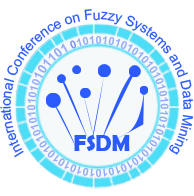Keynote Speaker

Dr.Witold Pedrycz, Professor (Life Fellow, IEEE)
Canada Research Chair (CRC) in computational intelligence with the Department of Electrical and Computer Engineering, University of Alberta, Edmonton, AB, Canada;Polish Academy of Sciences, Systems Research Institute, Warsaw, Poland.
Speech Title: Credibility and Interpretability/Explainability in Critical Applications of Machine Learning: An Environment of Granular Computing
Abstract: Over the recent years, we have been witnessing numerous and far-reaching developments and applications of Machine Learning (ML). With the plethora of applications found in critical areas such as autonomous vehicles, health care, networks, complex decision-making environments.
Two interrelated challenges become more apparent, namely credibility and interpretability/explainability. Both of them directly impact the acceptance and usefulness of ML constructs in a real-world environment. The credibility is also of concern to any application, especially the one being associated with a high level of criticality.
The notions of interpretability and explainability are formulated and we show how they are realized through a number of auxiliary models built upon the black models of ML constructs. Model-agnostic explainable models are discussed.
Proceeding with a conceptual and algorithmic pursuits, we advocate that the above problems could be formalized in the settings of Granular Computing. We show that to credibility any numeric result be augmented by the associated information granules and the quality of the results is quantified in terms of the characteristics of information granules. Different directions are discussed and revisited including confidence/ prediction intervals, granular embedding of ML models, and granular Gaussian Process models.
When coping with interepretability nd explainability of ML, information granules and their processing offer key advantages in a number of ways: (i) by stressing the product instead of product perspective and emphasizing importance of interactivity between the user and the explanation module, (ii) by incorporating suitable levels of abstraction, (iii)by building explanation layers with rule-based computing, (iv) by defining and quantifying stability of interpretation, and (v) by proposing ideas of granular counterfactual explanation.
Biography: Prof.Witold Pedrycz (Life Fellow, IEEE) received the M.Sc., Ph.D., and D.Sci. degrees from the Silesian University of Technology, Gliwice, Poland. He is currently a Professor and a Canada Research Chair (CRC) in computational intelligence with the Department of Electrical and Computer Engineering, University of Alberta, Edmonton, AB, Canada. He is also with the Polish Academy of Sciences, Systems Research Institute, Warsaw, Poland. His research interests include computational intelligence, fuzzy modeling, knowledge discovery, data mining, and fuzzy control, including fuzzy controllers, pattern recognition, knowledge-based neural networks, granular and relational computing, and software engineering. He has published numerous articles in these areas. He is also the author of 15 research monographs. He has been a member of numerous program committees of IEEE conferences in the area of fuzzy sets and neurocomputing. He is also the Editor-in-Chief of Information Sciences (Elsevier), WIREs Data Mining and Knowledge Discovery (Wiley), and the International Journal of Granular Computing (Springer). He served as the Editor-in-Chief for the IEEE Transactions on Systems Man and Cybernetics—Part A and the President of IFSA.
